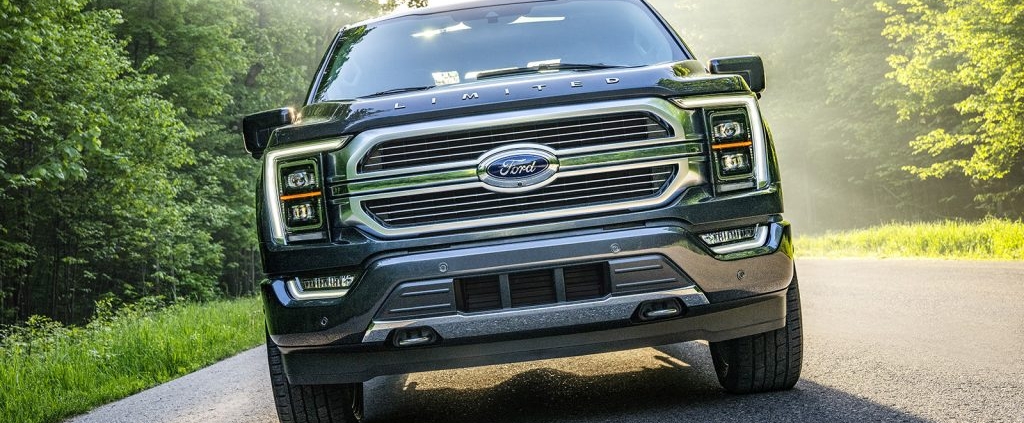American Car Brands
America has a long and illustrious history in the automotive industry and is home to several renowned car brands. From traditional gasoline-powered vehicles to cutting-edge electric cars and luxurious sedans to rugged pickup trucks, American car manufacturers have made their mark on the global automotive landscape.
Use our VIN decoder to get detailed information about the vehicle’s history, including its make, model, and year. With our VIN lookup tools, you can make an informed decision and feel confident about the quality of the used car you’re purchasing.
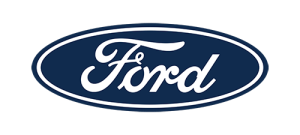 Ford Motor Company was founded by Henry Ford in 1903 and quickly became a pioneer in the automotive industry with the introduction of the Model T in 1908. Ford revolutionized mass production with the assembly line, making cars affordable for the average consumer. Throughout the 20th century, Ford continued to innovate and expand its product line, becoming one of the “Big Three” American automakers.
Today, Ford is a global leader in the automotive industry, offering a diverse range of vehicles including trucks, SUVs, and electric vehicles. The company continues to be a major player in the market, competing with other popular brands such as Chevrolet and Toyota. With a focus on sustainability and innovation, Ford is investing in electric and autonomous vehicles to stay competitive in the ever-evolving automotive market.
Ford Motor Company was founded by Henry Ford in 1903 and quickly became a pioneer in the automotive industry with the introduction of the Model T in 1908. Ford revolutionized mass production with the assembly line, making cars affordable for the average consumer. Throughout the 20th century, Ford continued to innovate and expand its product line, becoming one of the “Big Three” American automakers.
Today, Ford is a global leader in the automotive industry, offering a diverse range of vehicles including trucks, SUVs, and electric vehicles. The company continues to be a major player in the market, competing with other popular brands such as Chevrolet and Toyota. With a focus on sustainability and innovation, Ford is investing in electric and autonomous vehicles to stay competitive in the ever-evolving automotive market.
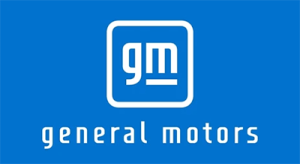 General Motors (GM) was founded in 1908 in Flint, Michigan, and quickly grew to become one of the largest automobile manufacturers in the world. Throughout the 20th century, GM was a dominant force in the automotive industry, producing popular brands such as Chevrolet, Cadillac, and Buick. However, in the early 21st century, GM faced financial hardship and was forced to declare bankruptcy in 2009. After a government bailout and restructuring, GM emerged as a leaner, more efficient company.
As of now, GM is once again a major player in the automotive market, with a focus on electric and autonomous vehicles. The company’s stock has performed well in recent years, and it continues to innovate and adapt in a rapidly changing industry.
General Motors (GM) was founded in 1908 in Flint, Michigan, and quickly grew to become one of the largest automobile manufacturers in the world. Throughout the 20th century, GM was a dominant force in the automotive industry, producing popular brands such as Chevrolet, Cadillac, and Buick. However, in the early 21st century, GM faced financial hardship and was forced to declare bankruptcy in 2009. After a government bailout and restructuring, GM emerged as a leaner, more efficient company.
As of now, GM is once again a major player in the automotive market, with a focus on electric and autonomous vehicles. The company’s stock has performed well in recent years, and it continues to innovate and adapt in a rapidly changing industry.
 Jeep was originally created by the American Bantam Car Company during World War II for military use and later produced for civilian use by Willys-Overland and Ford. The iconic Jeep brand has grown to produce a variety of SUVs and off-road vehicles, known for their ruggedness and off-road capabilities. In 1987, Jeep became a division of the Chrysler Corporation, which eventually merged with Fiat to become Fiat Chrysler Automobiles (FCA) and is now known as Stellantis after a recent merger.
Jeep is a dominant force in the SUV market, with a range of models from the compact Renegade to the large Grand Cherokee. It has expanded its global presence and has a strong market share in the United States, with plans to focus on expanding its electric and autonomous vehicle offerings in the near future. Despite market challenges such as increasing competition and the impact of the COVID-19 pandemic, Jeep remains a popular choice for consumers seeking off-road capability and rugged reliability.
Jeep was originally created by the American Bantam Car Company during World War II for military use and later produced for civilian use by Willys-Overland and Ford. The iconic Jeep brand has grown to produce a variety of SUVs and off-road vehicles, known for their ruggedness and off-road capabilities. In 1987, Jeep became a division of the Chrysler Corporation, which eventually merged with Fiat to become Fiat Chrysler Automobiles (FCA) and is now known as Stellantis after a recent merger.
Jeep is a dominant force in the SUV market, with a range of models from the compact Renegade to the large Grand Cherokee. It has expanded its global presence and has a strong market share in the United States, with plans to focus on expanding its electric and autonomous vehicle offerings in the near future. Despite market challenges such as increasing competition and the impact of the COVID-19 pandemic, Jeep remains a popular choice for consumers seeking off-road capability and rugged reliability.
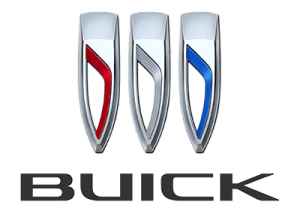 Buick is an American automotive company that was founded in 1899, making it one of the oldest automobile brands in the world. The company has a rich history of producing high-quality vehicles and has been a part of the General Motors family since 1908. Over the years, Buick has become known for its luxury and performance-oriented vehicles, cementing its place in the American automotive market.
In recent years, Buick has seen a decline in sales in the United States, with a focus on the Chinese market where the brand has experienced success. Buick has shifted its focus towards producing more crossover and SUV models to meet the demand for larger vehicles in the current market. The brand has also been investing in electric and hybrid technology to stay competitive in the evolving automotive industry. Despite facing challenges in the US market, Buick remains a significant player in the global automotive industry.
Buick is an American automotive company that was founded in 1899, making it one of the oldest automobile brands in the world. The company has a rich history of producing high-quality vehicles and has been a part of the General Motors family since 1908. Over the years, Buick has become known for its luxury and performance-oriented vehicles, cementing its place in the American automotive market.
In recent years, Buick has seen a decline in sales in the United States, with a focus on the Chinese market where the brand has experienced success. Buick has shifted its focus towards producing more crossover and SUV models to meet the demand for larger vehicles in the current market. The brand has also been investing in electric and hybrid technology to stay competitive in the evolving automotive industry. Despite facing challenges in the US market, Buick remains a significant player in the global automotive industry.
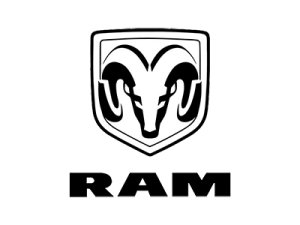 Ram is a brand of trucks that was originally established as a division of Dodge in 2010, but later became its own standalone brand in 2010. The brand has a long history of producing tough and dependable trucks that are popular among truck enthusiasts and contractors alike.
Ram trucks are widely recognized for their powerful engines, comfortable interiors, and innovative technology features. The brand has seen steady growth in sales and market share, with the Ram 1500 consistently ranking as one of the top-selling trucks in the United States. With a focus on building durable and reliable trucks, Ram continues to expand its lineup with new models and features to meet the demands of today’s truck buyers. The company also remains competitive in the electric and hybrid truck market, with plans to introduce electrified options in the near future.
Ram is a brand of trucks that was originally established as a division of Dodge in 2010, but later became its own standalone brand in 2010. The brand has a long history of producing tough and dependable trucks that are popular among truck enthusiasts and contractors alike.
Ram trucks are widely recognized for their powerful engines, comfortable interiors, and innovative technology features. The brand has seen steady growth in sales and market share, with the Ram 1500 consistently ranking as one of the top-selling trucks in the United States. With a focus on building durable and reliable trucks, Ram continues to expand its lineup with new models and features to meet the demands of today’s truck buyers. The company also remains competitive in the electric and hybrid truck market, with plans to introduce electrified options in the near future.
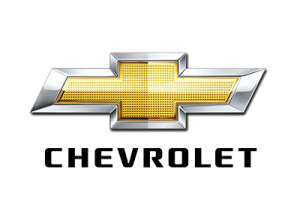 Chevrolet, also known as Chevy, was founded in 1911 by Louis Chevrolet and William C. Durant. The company has a long history of producing cars and trucks for the global market and has been a staple of the American automotive industry for over a century. Over the years, Chevrolet has become known for its iconic models such as the Corvette, Camaro, and Silverado, as well as for its innovation in electric vehicles like the Bolt EV.
Chevrolet continues to be a major player in the automotive market, offering a wide range of vehicles from compact cars to full-size trucks. The brand has expanded its electric and hybrid offerings, with the Bolt EV and Volt leading the charge in the electric vehicle market. Chevrolet continues to be a popular choice for consumers seeking affordable and reliable vehicles and has a strong presence in both domestic and international markets. Overall, Chevrolet maintains a strong position in the automotive industry and continues to innovate and adapt to changing consumer demands.
Chevrolet, also known as Chevy, was founded in 1911 by Louis Chevrolet and William C. Durant. The company has a long history of producing cars and trucks for the global market and has been a staple of the American automotive industry for over a century. Over the years, Chevrolet has become known for its iconic models such as the Corvette, Camaro, and Silverado, as well as for its innovation in electric vehicles like the Bolt EV.
Chevrolet continues to be a major player in the automotive market, offering a wide range of vehicles from compact cars to full-size trucks. The brand has expanded its electric and hybrid offerings, with the Bolt EV and Volt leading the charge in the electric vehicle market. Chevrolet continues to be a popular choice for consumers seeking affordable and reliable vehicles and has a strong presence in both domestic and international markets. Overall, Chevrolet maintains a strong position in the automotive industry and continues to innovate and adapt to changing consumer demands.
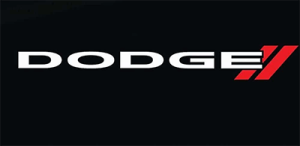 Dodge was founded in 1914 by brothers Horace and John Dodge in Detroit, Michigan. The company initially began as a supplier of parts and assemblies for Detroit-based automobile manufacturers. In 1915, Dodge officially entered the automobile manufacturing business, producing a new car line and rapidly becoming one of the largest automobile manufacturers in America. Over the years, Dodge has experienced various ownership changes and expansions, including being acquired by Chrysler Corporation in the 1920s. The company has produced a wide range of vehicles, including trucks, SUVs, and sedans, and has been known for its innovative designs and powerful performance.
Dodge continues to be a prominent player in the automobile market, with a strong focus on producing high-performance vehicles that cater to enthusiasts. The company has a loyal following of customers who appreciate their powerful and stylish vehicles, and they continue to maintain a competitive position in the market with new model releases and innovative technology. Dodge’s commitment to performance and innovation has solidified its position as a strong player in the automotive industry.
Dodge was founded in 1914 by brothers Horace and John Dodge in Detroit, Michigan. The company initially began as a supplier of parts and assemblies for Detroit-based automobile manufacturers. In 1915, Dodge officially entered the automobile manufacturing business, producing a new car line and rapidly becoming one of the largest automobile manufacturers in America. Over the years, Dodge has experienced various ownership changes and expansions, including being acquired by Chrysler Corporation in the 1920s. The company has produced a wide range of vehicles, including trucks, SUVs, and sedans, and has been known for its innovative designs and powerful performance.
Dodge continues to be a prominent player in the automobile market, with a strong focus on producing high-performance vehicles that cater to enthusiasts. The company has a loyal following of customers who appreciate their powerful and stylish vehicles, and they continue to maintain a competitive position in the market with new model releases and innovative technology. Dodge’s commitment to performance and innovation has solidified its position as a strong player in the automotive industry.
 VLF Automotive is an American luxury sports car manufacturer founded in 2012 by Henrik Fisker, Bob Lutz, and Gilbert Villarreal. The company’s first model, the VLF Destino, was based on the Fisker Karma and featured a V8 engine instead of the original electric powertrain. In 2016, VLF launched the Force 1, a high-performance sports car, at the North American International Auto Show in Detroit.
VLF is a niche player in the luxury sports car market, offering custom-built vehicles with a focus on high performance and luxury. The company’s vehicles are aimed at a select group of enthusiasts who are looking for unique and high-end automotive experiences. While not as mainstream as some of its competitors, VLF continues to attract attention and customers who value luxury, performance, and exclusivity in their vehicles.
VLF Automotive is an American luxury sports car manufacturer founded in 2012 by Henrik Fisker, Bob Lutz, and Gilbert Villarreal. The company’s first model, the VLF Destino, was based on the Fisker Karma and featured a V8 engine instead of the original electric powertrain. In 2016, VLF launched the Force 1, a high-performance sports car, at the North American International Auto Show in Detroit.
VLF is a niche player in the luxury sports car market, offering custom-built vehicles with a focus on high performance and luxury. The company’s vehicles are aimed at a select group of enthusiasts who are looking for unique and high-end automotive experiences. While not as mainstream as some of its competitors, VLF continues to attract attention and customers who value luxury, performance, and exclusivity in their vehicles.
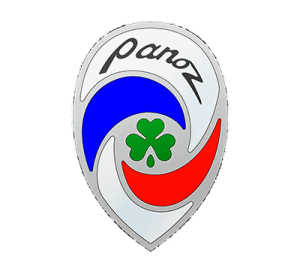 Panoz, an American sports car manufacturer, was founded in 1989 by entrepreneur Don Panoz. The company made a name for itself by producing high-performance, handcrafted sports cars that offered a unique combination of luxury and speed. Panoz gained attention in the automotive world with the release of their first model, the Panoz Roadster, in 1992 and continued to expand their lineup with the Esperante and Abruzzi models in the following years.
Panoz continues to produce luxury sports cars known for their high performance and handcrafted quality. With a focus on limited production and custom design options, Panoz has carved out a niche in the high-end sports car market. While they may not have the same level of mainstream recognition as some larger manufacturers, Panoz has a dedicated following of enthusiasts who appreciate their unique approach to car design and manufacturing.
Panoz, an American sports car manufacturer, was founded in 1989 by entrepreneur Don Panoz. The company made a name for itself by producing high-performance, handcrafted sports cars that offered a unique combination of luxury and speed. Panoz gained attention in the automotive world with the release of their first model, the Panoz Roadster, in 1992 and continued to expand their lineup with the Esperante and Abruzzi models in the following years.
Panoz continues to produce luxury sports cars known for their high performance and handcrafted quality. With a focus on limited production and custom design options, Panoz has carved out a niche in the high-end sports car market. While they may not have the same level of mainstream recognition as some larger manufacturers, Panoz has a dedicated following of enthusiasts who appreciate their unique approach to car design and manufacturing.
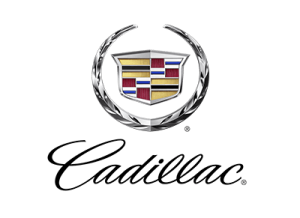 Cadillac is an American luxury automobile brand founded in 1902 by Henry Leland. It quickly gained a reputation for producing high-quality, luxurious vehicles, and became a leading luxury car brand in the United States. In the 1950s and 1960s, Cadillac was known for its large, extravagant cars popular with celebrities and the wealthy. However, it faced increased competition from European luxury car brands in the late 20th century.
Cadillac is still a prominent luxury car brand, offering a range of sedans, SUVs, and crossovers. It is known for its advanced technology features, striking design, and performance-oriented driving experience in the luxury car market. Cadillac has also focused on sustainability and announced plans to electrify its lineup, aiming to become a leader in the electric vehicle market. With its reputation for luxury and innovation, Cadillac continues to be a major player in the luxury automotive industry.
Cadillac is an American luxury automobile brand founded in 1902 by Henry Leland. It quickly gained a reputation for producing high-quality, luxurious vehicles, and became a leading luxury car brand in the United States. In the 1950s and 1960s, Cadillac was known for its large, extravagant cars popular with celebrities and the wealthy. However, it faced increased competition from European luxury car brands in the late 20th century.
Cadillac is still a prominent luxury car brand, offering a range of sedans, SUVs, and crossovers. It is known for its advanced technology features, striking design, and performance-oriented driving experience in the luxury car market. Cadillac has also focused on sustainability and announced plans to electrify its lineup, aiming to become a leader in the electric vehicle market. With its reputation for luxury and innovation, Cadillac continues to be a major player in the luxury automotive industry.
 Lincoln Motor Company was founded in 1917 as a division of Ford Motor Company, specializing in luxury vehicles. Throughout the 20th century, Lincoln produced popular models such as the Continental and the Town Car, establishing itself as a top competitor in the luxury automobile market. In the 1980s, the brand faced financial struggles and was eventually acquired by Ford, which has since worked to reinvigorate the brand’s image and product line.
Lincoln continues to produce luxury vehicles, with a focus on high-quality craftsmanship and advanced technology. The brand has expanded its lineup to include popular SUVs and crossovers, such as the Navigator and the Aviator, in addition to its classic sedan models. Lincoln has positioned itself as a top choice for consumers seeking luxury and comfort in their vehicles, with a strong presence in the North American and Chinese markets.
Lincoln Motor Company was founded in 1917 as a division of Ford Motor Company, specializing in luxury vehicles. Throughout the 20th century, Lincoln produced popular models such as the Continental and the Town Car, establishing itself as a top competitor in the luxury automobile market. In the 1980s, the brand faced financial struggles and was eventually acquired by Ford, which has since worked to reinvigorate the brand’s image and product line.
Lincoln continues to produce luxury vehicles, with a focus on high-quality craftsmanship and advanced technology. The brand has expanded its lineup to include popular SUVs and crossovers, such as the Navigator and the Aviator, in addition to its classic sedan models. Lincoln has positioned itself as a top choice for consumers seeking luxury and comfort in their vehicles, with a strong presence in the North American and Chinese markets.
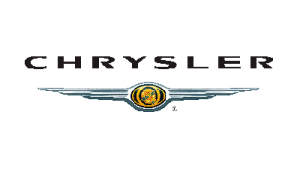 Chrysler was founded in 1925 by Walter P. Chrysler and quickly became a major player in the American automotive industry, known for its advanced engineering and luxury vehicle lineup. In the 1980s, the company faced financial difficulties and was bailed out by the U.S. government. It later merged with Daimler-Benz in 1998, and then with Fiat in 2014 to form Fiat Chrysler Automobiles (FCA).
Chrysler is a subsidiary of Stellantis, a multinational automotive corporation formed by the merger of FCA and PSA Group in 2021. The brand primarily focuses on producing minivans and crossover SUVs, such as the Chrysler Pacifica and Chrysler Voyager. While still recognized as a historic and beloved American automaker, Chrysler’s market share has diminished in recent years due to fierce competition and shifting consumer preferences towards SUVs and electric vehicles. However, the brand continues to innovate and evolve to stay relevant in the market.
Chrysler was founded in 1925 by Walter P. Chrysler and quickly became a major player in the American automotive industry, known for its advanced engineering and luxury vehicle lineup. In the 1980s, the company faced financial difficulties and was bailed out by the U.S. government. It later merged with Daimler-Benz in 1998, and then with Fiat in 2014 to form Fiat Chrysler Automobiles (FCA).
Chrysler is a subsidiary of Stellantis, a multinational automotive corporation formed by the merger of FCA and PSA Group in 2021. The brand primarily focuses on producing minivans and crossover SUVs, such as the Chrysler Pacifica and Chrysler Voyager. While still recognized as a historic and beloved American automaker, Chrysler’s market share has diminished in recent years due to fierce competition and shifting consumer preferences towards SUVs and electric vehicles. However, the brand continues to innovate and evolve to stay relevant in the market.
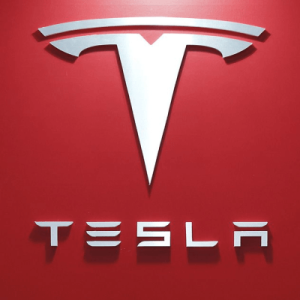 Tesla, Inc. is an American electric vehicle and clean energy company founded in 2003 by Elon Musk, JB Straubel, Martin Eberhard, Marc Tarpenning, and Ian Wright. The company began with the production of the Tesla Roadster, the first fully electric sports car, and has since expanded to produce a range of electric cars, batteries, and solar products. Tesla’s innovative approach to electric vehicles and sustainable energy has quickly made it a leading figure in the push toward a more environmentally friendly future.
Tesla is one of the most valuable automakers in the world, with a market capitalization that surpasses many well-established car companies. The company’s electric vehicles, including the Model S, Model 3, Model X, and Model Y, have gained a strong following and are known for their performance, range, and cutting-edge technology. Additionally, Tesla’s energy products, such as solar panels and Powerwall batteries, continue to be in high demand as consumers and businesses seek more sustainable energy solutions. Despite facing challenges from traditional car manufacturers, Tesla’s position in the market remains strong, and the company continues to innovate and push the boundaries of electric vehicle technology.
Tesla, Inc. is an American electric vehicle and clean energy company founded in 2003 by Elon Musk, JB Straubel, Martin Eberhard, Marc Tarpenning, and Ian Wright. The company began with the production of the Tesla Roadster, the first fully electric sports car, and has since expanded to produce a range of electric cars, batteries, and solar products. Tesla’s innovative approach to electric vehicles and sustainable energy has quickly made it a leading figure in the push toward a more environmentally friendly future.
Tesla is one of the most valuable automakers in the world, with a market capitalization that surpasses many well-established car companies. The company’s electric vehicles, including the Model S, Model 3, Model X, and Model Y, have gained a strong following and are known for their performance, range, and cutting-edge technology. Additionally, Tesla’s energy products, such as solar panels and Powerwall batteries, continue to be in high demand as consumers and businesses seek more sustainable energy solutions. Despite facing challenges from traditional car manufacturers, Tesla’s position in the market remains strong, and the company continues to innovate and push the boundaries of electric vehicle technology.
 Karma is a luxury electric car company founded in 2014 in Costa Mesa, California. The company initially operated under the name Fisker Automotive until it was rebranded as Karma Automotive in 2016. The company gained attention for its stylish design and environmentally friendly approach to the luxury car market.
Despite facing financial challenges and production delays in its early years, Karma Automotive has since rebounded and expanded its presence in the electric car market. The company now offers a range of luxury electric vehicles, including the Revero GT and the upcoming all-electric GSe-6. Karma Automotive has also partnered with other companies to develop innovative technologies and expand its global reach, solidifying its position as a key player in the luxury electric car market.
Karma is a luxury electric car company founded in 2014 in Costa Mesa, California. The company initially operated under the name Fisker Automotive until it was rebranded as Karma Automotive in 2016. The company gained attention for its stylish design and environmentally friendly approach to the luxury car market.
Despite facing financial challenges and production delays in its early years, Karma Automotive has since rebounded and expanded its presence in the electric car market. The company now offers a range of luxury electric vehicles, including the Revero GT and the upcoming all-electric GSe-6. Karma Automotive has also partnered with other companies to develop innovative technologies and expand its global reach, solidifying its position as a key player in the luxury electric car market.
 Lucid Motors, an American automotive company, was founded in 2007 as a luxury electric vehicle manufacturer. The company initially started as Atieva, focusing on battery technology before pivoting to electric vehicles and changing their name to Lucid Motors in 2016. In 2020, Lucid unveiled its first production vehicle, the Lucid Air, with plans to compete in the luxury electric vehicle market.
Currently, Lucid Motors is making waves in the electric vehicle space with the upcoming release of the Lucid Air, which has received high praise for its performance and technology. The company has also gained attention for its state-of-the-art manufacturing facility in Arizona and its partnership with Samsung SDI for advanced battery technology. As a newcomer in the market, Lucid Motors is positioning itself to compete with established luxury electric vehicle makers like Tesla and Porsche.
Lucid Motors, an American automotive company, was founded in 2007 as a luxury electric vehicle manufacturer. The company initially started as Atieva, focusing on battery technology before pivoting to electric vehicles and changing their name to Lucid Motors in 2016. In 2020, Lucid unveiled its first production vehicle, the Lucid Air, with plans to compete in the luxury electric vehicle market.
Currently, Lucid Motors is making waves in the electric vehicle space with the upcoming release of the Lucid Air, which has received high praise for its performance and technology. The company has also gained attention for its state-of-the-art manufacturing facility in Arizona and its partnership with Samsung SDI for advanced battery technology. As a newcomer in the market, Lucid Motors is positioning itself to compete with established luxury electric vehicle makers like Tesla and Porsche.
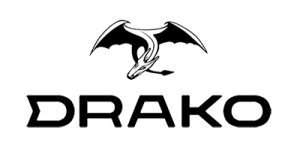 Drako Motors is a California-based electric car company that was founded in 2015 by Dean Drako and Shiv Sikand. The company’s first vehicle, the Drako GTE, was unveiled in 2019 and boasted 1,200 horsepower and a top speed of 206 miles per hour. Drako Motors has focused on creating high-performance, luxury electric vehicles that cater to the high-end market segment.
Despite being a relatively new player in the electric car market, Drako Motors has garnered attention for their powerful and luxurious electric vehicles. The company has positioned itself as a niche player, catering to a smaller segment of the market that seeks high performance and luxury in their electric cars. With the increasing demand for electric vehicles and the company’s focus on innovation and performance, Drako Motors is poised to continue carving out a niche for itself in the electric vehicle market.
Drako Motors is a California-based electric car company that was founded in 2015 by Dean Drako and Shiv Sikand. The company’s first vehicle, the Drako GTE, was unveiled in 2019 and boasted 1,200 horsepower and a top speed of 206 miles per hour. Drako Motors has focused on creating high-performance, luxury electric vehicles that cater to the high-end market segment.
Despite being a relatively new player in the electric car market, Drako Motors has garnered attention for their powerful and luxurious electric vehicles. The company has positioned itself as a niche player, catering to a smaller segment of the market that seeks high performance and luxury in their electric cars. With the increasing demand for electric vehicles and the company’s focus on innovation and performance, Drako Motors is poised to continue carving out a niche for itself in the electric vehicle market.
Brief History of the American Auto Industry
The American auto industry has a long and storied history, dating back to the late 19th century when the first gasoline-powered automobiles were introduced, but it only truly shone in the late 19th century with the establishment of companies like Ford, General Motors, and Chrysler. These companies revolutionized transportation by mass-producing automobiles, making them more affordable and accessible to the general public. Henry Ford revolutionized the auto industry with the introduction of the assembly line in 1913, which allowed for mass production of cars at a much lower cost. This led to the rapid expansion of the industry and the development of iconic American auto brands such as Ford, Chevrolet, and Chrysler. As the industry grew and developed, so too did the need for a system to track and identify individual vehicles, leading to the creation of the vehicle identification number (VIN) and license plate number. In 1903, Massachusetts became the first state to require automobile owners to register their vehicles and display a license plate. This practice quickly spread to other states, and in 1918, the first standardized license plate design was introduced. The Great Depression had a significant impact on the auto industry, leading to the collapse of many smaller manufacturers and the consolidation of larger companies. However, the industry rebounded after World War II and experienced a period of unprecedented growth and prosperity in the 1950s and 1960s. In the 1950s, the modern VIN system was developed, providing a unique identifier for each vehicle that could be used for registration, insurance, and other purposes. This system has continued to evolve over the years, with additional information and features being added to the VIN to provide more detailed information about each vehicle’s make, model, and production information, making VIN checks an instant vehicle history search a possibility. The 1970s and 1980s brought new challenges to the American auto industry, including increased competition from foreign manufacturers and rising fuel prices. This led to a period of decline for American automakers, with many companies struggling to remain competitive in the global market. In recent decades, American automakers have undergone significant restructuring and modernization in order to adapt to changing market conditions and consumer preferences. The industry has also seen the rise of electric and hybrid vehicles, as well as advancements in autonomous driving technology. Today, the American auto industry remains a major force in the global market, with iconic brands such as Ford, General Motors, and Tesla continuing to innovate and produce a wide range of vehicles for consumers around the world.Popular American Car Brands
American brands are popular because they are associated with quality, innovation, and a strong sense of national pride. They also have a strong presence in international markets, allowing them to reach a wide range of consumers. Additionally, American brands are often seen as aspirational, carrying with them a certain prestige and status. When it comes to American car brands that have consistently proven their appeal to consumers around the world, there are several that have earned a strong reputation for their reliability, performance, and cutting-edge technology. Ford Motor Company was founded by Henry Ford in 1903 and quickly became a pioneer in the automotive industry with the introduction of the Model T in 1908. Ford revolutionized mass production with the assembly line, making cars affordable for the average consumer. Throughout the 20th century, Ford continued to innovate and expand its product line, becoming one of the “Big Three” American automakers.
Today, Ford is a global leader in the automotive industry, offering a diverse range of vehicles including trucks, SUVs, and electric vehicles. The company continues to be a major player in the market, competing with other popular brands such as Chevrolet and Toyota. With a focus on sustainability and innovation, Ford is investing in electric and autonomous vehicles to stay competitive in the ever-evolving automotive market.
Ford Motor Company was founded by Henry Ford in 1903 and quickly became a pioneer in the automotive industry with the introduction of the Model T in 1908. Ford revolutionized mass production with the assembly line, making cars affordable for the average consumer. Throughout the 20th century, Ford continued to innovate and expand its product line, becoming one of the “Big Three” American automakers.
Today, Ford is a global leader in the automotive industry, offering a diverse range of vehicles including trucks, SUVs, and electric vehicles. The company continues to be a major player in the market, competing with other popular brands such as Chevrolet and Toyota. With a focus on sustainability and innovation, Ford is investing in electric and autonomous vehicles to stay competitive in the ever-evolving automotive market.
 General Motors (GM) was founded in 1908 in Flint, Michigan, and quickly grew to become one of the largest automobile manufacturers in the world. Throughout the 20th century, GM was a dominant force in the automotive industry, producing popular brands such as Chevrolet, Cadillac, and Buick. However, in the early 21st century, GM faced financial hardship and was forced to declare bankruptcy in 2009. After a government bailout and restructuring, GM emerged as a leaner, more efficient company.
As of now, GM is once again a major player in the automotive market, with a focus on electric and autonomous vehicles. The company’s stock has performed well in recent years, and it continues to innovate and adapt in a rapidly changing industry.
General Motors (GM) was founded in 1908 in Flint, Michigan, and quickly grew to become one of the largest automobile manufacturers in the world. Throughout the 20th century, GM was a dominant force in the automotive industry, producing popular brands such as Chevrolet, Cadillac, and Buick. However, in the early 21st century, GM faced financial hardship and was forced to declare bankruptcy in 2009. After a government bailout and restructuring, GM emerged as a leaner, more efficient company.
As of now, GM is once again a major player in the automotive market, with a focus on electric and autonomous vehicles. The company’s stock has performed well in recent years, and it continues to innovate and adapt in a rapidly changing industry.
 Jeep was originally created by the American Bantam Car Company during World War II for military use and later produced for civilian use by Willys-Overland and Ford. The iconic Jeep brand has grown to produce a variety of SUVs and off-road vehicles, known for their ruggedness and off-road capabilities. In 1987, Jeep became a division of the Chrysler Corporation, which eventually merged with Fiat to become Fiat Chrysler Automobiles (FCA) and is now known as Stellantis after a recent merger.
Jeep is a dominant force in the SUV market, with a range of models from the compact Renegade to the large Grand Cherokee. It has expanded its global presence and has a strong market share in the United States, with plans to focus on expanding its electric and autonomous vehicle offerings in the near future. Despite market challenges such as increasing competition and the impact of the COVID-19 pandemic, Jeep remains a popular choice for consumers seeking off-road capability and rugged reliability.
Jeep was originally created by the American Bantam Car Company during World War II for military use and later produced for civilian use by Willys-Overland and Ford. The iconic Jeep brand has grown to produce a variety of SUVs and off-road vehicles, known for their ruggedness and off-road capabilities. In 1987, Jeep became a division of the Chrysler Corporation, which eventually merged with Fiat to become Fiat Chrysler Automobiles (FCA) and is now known as Stellantis after a recent merger.
Jeep is a dominant force in the SUV market, with a range of models from the compact Renegade to the large Grand Cherokee. It has expanded its global presence and has a strong market share in the United States, with plans to focus on expanding its electric and autonomous vehicle offerings in the near future. Despite market challenges such as increasing competition and the impact of the COVID-19 pandemic, Jeep remains a popular choice for consumers seeking off-road capability and rugged reliability.
 Buick is an American automotive company that was founded in 1899, making it one of the oldest automobile brands in the world. The company has a rich history of producing high-quality vehicles and has been a part of the General Motors family since 1908. Over the years, Buick has become known for its luxury and performance-oriented vehicles, cementing its place in the American automotive market.
In recent years, Buick has seen a decline in sales in the United States, with a focus on the Chinese market where the brand has experienced success. Buick has shifted its focus towards producing more crossover and SUV models to meet the demand for larger vehicles in the current market. The brand has also been investing in electric and hybrid technology to stay competitive in the evolving automotive industry. Despite facing challenges in the US market, Buick remains a significant player in the global automotive industry.
Buick is an American automotive company that was founded in 1899, making it one of the oldest automobile brands in the world. The company has a rich history of producing high-quality vehicles and has been a part of the General Motors family since 1908. Over the years, Buick has become known for its luxury and performance-oriented vehicles, cementing its place in the American automotive market.
In recent years, Buick has seen a decline in sales in the United States, with a focus on the Chinese market where the brand has experienced success. Buick has shifted its focus towards producing more crossover and SUV models to meet the demand for larger vehicles in the current market. The brand has also been investing in electric and hybrid technology to stay competitive in the evolving automotive industry. Despite facing challenges in the US market, Buick remains a significant player in the global automotive industry.
 Ram is a brand of trucks that was originally established as a division of Dodge in 2010, but later became its own standalone brand in 2010. The brand has a long history of producing tough and dependable trucks that are popular among truck enthusiasts and contractors alike.
Ram trucks are widely recognized for their powerful engines, comfortable interiors, and innovative technology features. The brand has seen steady growth in sales and market share, with the Ram 1500 consistently ranking as one of the top-selling trucks in the United States. With a focus on building durable and reliable trucks, Ram continues to expand its lineup with new models and features to meet the demands of today’s truck buyers. The company also remains competitive in the electric and hybrid truck market, with plans to introduce electrified options in the near future.
Ram is a brand of trucks that was originally established as a division of Dodge in 2010, but later became its own standalone brand in 2010. The brand has a long history of producing tough and dependable trucks that are popular among truck enthusiasts and contractors alike.
Ram trucks are widely recognized for their powerful engines, comfortable interiors, and innovative technology features. The brand has seen steady growth in sales and market share, with the Ram 1500 consistently ranking as one of the top-selling trucks in the United States. With a focus on building durable and reliable trucks, Ram continues to expand its lineup with new models and features to meet the demands of today’s truck buyers. The company also remains competitive in the electric and hybrid truck market, with plans to introduce electrified options in the near future.
American Sports Car Brands
The thrill of high-speed performance and impeccable engineering characterizes American sports car manufacturers. Chevrolet, also known as Chevy, was founded in 1911 by Louis Chevrolet and William C. Durant. The company has a long history of producing cars and trucks for the global market and has been a staple of the American automotive industry for over a century. Over the years, Chevrolet has become known for its iconic models such as the Corvette, Camaro, and Silverado, as well as for its innovation in electric vehicles like the Bolt EV.
Chevrolet continues to be a major player in the automotive market, offering a wide range of vehicles from compact cars to full-size trucks. The brand has expanded its electric and hybrid offerings, with the Bolt EV and Volt leading the charge in the electric vehicle market. Chevrolet continues to be a popular choice for consumers seeking affordable and reliable vehicles and has a strong presence in both domestic and international markets. Overall, Chevrolet maintains a strong position in the automotive industry and continues to innovate and adapt to changing consumer demands.
Chevrolet, also known as Chevy, was founded in 1911 by Louis Chevrolet and William C. Durant. The company has a long history of producing cars and trucks for the global market and has been a staple of the American automotive industry for over a century. Over the years, Chevrolet has become known for its iconic models such as the Corvette, Camaro, and Silverado, as well as for its innovation in electric vehicles like the Bolt EV.
Chevrolet continues to be a major player in the automotive market, offering a wide range of vehicles from compact cars to full-size trucks. The brand has expanded its electric and hybrid offerings, with the Bolt EV and Volt leading the charge in the electric vehicle market. Chevrolet continues to be a popular choice for consumers seeking affordable and reliable vehicles and has a strong presence in both domestic and international markets. Overall, Chevrolet maintains a strong position in the automotive industry and continues to innovate and adapt to changing consumer demands.
 Dodge was founded in 1914 by brothers Horace and John Dodge in Detroit, Michigan. The company initially began as a supplier of parts and assemblies for Detroit-based automobile manufacturers. In 1915, Dodge officially entered the automobile manufacturing business, producing a new car line and rapidly becoming one of the largest automobile manufacturers in America. Over the years, Dodge has experienced various ownership changes and expansions, including being acquired by Chrysler Corporation in the 1920s. The company has produced a wide range of vehicles, including trucks, SUVs, and sedans, and has been known for its innovative designs and powerful performance.
Dodge continues to be a prominent player in the automobile market, with a strong focus on producing high-performance vehicles that cater to enthusiasts. The company has a loyal following of customers who appreciate their powerful and stylish vehicles, and they continue to maintain a competitive position in the market with new model releases and innovative technology. Dodge’s commitment to performance and innovation has solidified its position as a strong player in the automotive industry.
Dodge was founded in 1914 by brothers Horace and John Dodge in Detroit, Michigan. The company initially began as a supplier of parts and assemblies for Detroit-based automobile manufacturers. In 1915, Dodge officially entered the automobile manufacturing business, producing a new car line and rapidly becoming one of the largest automobile manufacturers in America. Over the years, Dodge has experienced various ownership changes and expansions, including being acquired by Chrysler Corporation in the 1920s. The company has produced a wide range of vehicles, including trucks, SUVs, and sedans, and has been known for its innovative designs and powerful performance.
Dodge continues to be a prominent player in the automobile market, with a strong focus on producing high-performance vehicles that cater to enthusiasts. The company has a loyal following of customers who appreciate their powerful and stylish vehicles, and they continue to maintain a competitive position in the market with new model releases and innovative technology. Dodge’s commitment to performance and innovation has solidified its position as a strong player in the automotive industry.
 VLF Automotive is an American luxury sports car manufacturer founded in 2012 by Henrik Fisker, Bob Lutz, and Gilbert Villarreal. The company’s first model, the VLF Destino, was based on the Fisker Karma and featured a V8 engine instead of the original electric powertrain. In 2016, VLF launched the Force 1, a high-performance sports car, at the North American International Auto Show in Detroit.
VLF is a niche player in the luxury sports car market, offering custom-built vehicles with a focus on high performance and luxury. The company’s vehicles are aimed at a select group of enthusiasts who are looking for unique and high-end automotive experiences. While not as mainstream as some of its competitors, VLF continues to attract attention and customers who value luxury, performance, and exclusivity in their vehicles.
VLF Automotive is an American luxury sports car manufacturer founded in 2012 by Henrik Fisker, Bob Lutz, and Gilbert Villarreal. The company’s first model, the VLF Destino, was based on the Fisker Karma and featured a V8 engine instead of the original electric powertrain. In 2016, VLF launched the Force 1, a high-performance sports car, at the North American International Auto Show in Detroit.
VLF is a niche player in the luxury sports car market, offering custom-built vehicles with a focus on high performance and luxury. The company’s vehicles are aimed at a select group of enthusiasts who are looking for unique and high-end automotive experiences. While not as mainstream as some of its competitors, VLF continues to attract attention and customers who value luxury, performance, and exclusivity in their vehicles.
 Panoz, an American sports car manufacturer, was founded in 1989 by entrepreneur Don Panoz. The company made a name for itself by producing high-performance, handcrafted sports cars that offered a unique combination of luxury and speed. Panoz gained attention in the automotive world with the release of their first model, the Panoz Roadster, in 1992 and continued to expand their lineup with the Esperante and Abruzzi models in the following years.
Panoz continues to produce luxury sports cars known for their high performance and handcrafted quality. With a focus on limited production and custom design options, Panoz has carved out a niche in the high-end sports car market. While they may not have the same level of mainstream recognition as some larger manufacturers, Panoz has a dedicated following of enthusiasts who appreciate their unique approach to car design and manufacturing.
Panoz, an American sports car manufacturer, was founded in 1989 by entrepreneur Don Panoz. The company made a name for itself by producing high-performance, handcrafted sports cars that offered a unique combination of luxury and speed. Panoz gained attention in the automotive world with the release of their first model, the Panoz Roadster, in 1992 and continued to expand their lineup with the Esperante and Abruzzi models in the following years.
Panoz continues to produce luxury sports cars known for their high performance and handcrafted quality. With a focus on limited production and custom design options, Panoz has carved out a niche in the high-end sports car market. While they may not have the same level of mainstream recognition as some larger manufacturers, Panoz has a dedicated following of enthusiasts who appreciate their unique approach to car design and manufacturing.
American Luxury Car Brands
For those seeking unparalleled luxury and sophistication, the top luxury car brands in the U.S. are synonymous with opulence and have been counted as favorites by those desiring premium luxury vehicles. Cadillac is an American luxury automobile brand founded in 1902 by Henry Leland. It quickly gained a reputation for producing high-quality, luxurious vehicles, and became a leading luxury car brand in the United States. In the 1950s and 1960s, Cadillac was known for its large, extravagant cars popular with celebrities and the wealthy. However, it faced increased competition from European luxury car brands in the late 20th century.
Cadillac is still a prominent luxury car brand, offering a range of sedans, SUVs, and crossovers. It is known for its advanced technology features, striking design, and performance-oriented driving experience in the luxury car market. Cadillac has also focused on sustainability and announced plans to electrify its lineup, aiming to become a leader in the electric vehicle market. With its reputation for luxury and innovation, Cadillac continues to be a major player in the luxury automotive industry.
Cadillac is an American luxury automobile brand founded in 1902 by Henry Leland. It quickly gained a reputation for producing high-quality, luxurious vehicles, and became a leading luxury car brand in the United States. In the 1950s and 1960s, Cadillac was known for its large, extravagant cars popular with celebrities and the wealthy. However, it faced increased competition from European luxury car brands in the late 20th century.
Cadillac is still a prominent luxury car brand, offering a range of sedans, SUVs, and crossovers. It is known for its advanced technology features, striking design, and performance-oriented driving experience in the luxury car market. Cadillac has also focused on sustainability and announced plans to electrify its lineup, aiming to become a leader in the electric vehicle market. With its reputation for luxury and innovation, Cadillac continues to be a major player in the luxury automotive industry.
 Lincoln Motor Company was founded in 1917 as a division of Ford Motor Company, specializing in luxury vehicles. Throughout the 20th century, Lincoln produced popular models such as the Continental and the Town Car, establishing itself as a top competitor in the luxury automobile market. In the 1980s, the brand faced financial struggles and was eventually acquired by Ford, which has since worked to reinvigorate the brand’s image and product line.
Lincoln continues to produce luxury vehicles, with a focus on high-quality craftsmanship and advanced technology. The brand has expanded its lineup to include popular SUVs and crossovers, such as the Navigator and the Aviator, in addition to its classic sedan models. Lincoln has positioned itself as a top choice for consumers seeking luxury and comfort in their vehicles, with a strong presence in the North American and Chinese markets.
Lincoln Motor Company was founded in 1917 as a division of Ford Motor Company, specializing in luxury vehicles. Throughout the 20th century, Lincoln produced popular models such as the Continental and the Town Car, establishing itself as a top competitor in the luxury automobile market. In the 1980s, the brand faced financial struggles and was eventually acquired by Ford, which has since worked to reinvigorate the brand’s image and product line.
Lincoln continues to produce luxury vehicles, with a focus on high-quality craftsmanship and advanced technology. The brand has expanded its lineup to include popular SUVs and crossovers, such as the Navigator and the Aviator, in addition to its classic sedan models. Lincoln has positioned itself as a top choice for consumers seeking luxury and comfort in their vehicles, with a strong presence in the North American and Chinese markets.
 Chrysler was founded in 1925 by Walter P. Chrysler and quickly became a major player in the American automotive industry, known for its advanced engineering and luxury vehicle lineup. In the 1980s, the company faced financial difficulties and was bailed out by the U.S. government. It later merged with Daimler-Benz in 1998, and then with Fiat in 2014 to form Fiat Chrysler Automobiles (FCA).
Chrysler is a subsidiary of Stellantis, a multinational automotive corporation formed by the merger of FCA and PSA Group in 2021. The brand primarily focuses on producing minivans and crossover SUVs, such as the Chrysler Pacifica and Chrysler Voyager. While still recognized as a historic and beloved American automaker, Chrysler’s market share has diminished in recent years due to fierce competition and shifting consumer preferences towards SUVs and electric vehicles. However, the brand continues to innovate and evolve to stay relevant in the market.
Chrysler was founded in 1925 by Walter P. Chrysler and quickly became a major player in the American automotive industry, known for its advanced engineering and luxury vehicle lineup. In the 1980s, the company faced financial difficulties and was bailed out by the U.S. government. It later merged with Daimler-Benz in 1998, and then with Fiat in 2014 to form Fiat Chrysler Automobiles (FCA).
Chrysler is a subsidiary of Stellantis, a multinational automotive corporation formed by the merger of FCA and PSA Group in 2021. The brand primarily focuses on producing minivans and crossover SUVs, such as the Chrysler Pacifica and Chrysler Voyager. While still recognized as a historic and beloved American automaker, Chrysler’s market share has diminished in recent years due to fierce competition and shifting consumer preferences towards SUVs and electric vehicles. However, the brand continues to innovate and evolve to stay relevant in the market.
American Electric Vehicle Brands
Electric vehicles have become increasingly popular, and several American car brands have joined the electric car revolution. Tesla, Inc. is an American electric vehicle and clean energy company founded in 2003 by Elon Musk, JB Straubel, Martin Eberhard, Marc Tarpenning, and Ian Wright. The company began with the production of the Tesla Roadster, the first fully electric sports car, and has since expanded to produce a range of electric cars, batteries, and solar products. Tesla’s innovative approach to electric vehicles and sustainable energy has quickly made it a leading figure in the push toward a more environmentally friendly future.
Tesla is one of the most valuable automakers in the world, with a market capitalization that surpasses many well-established car companies. The company’s electric vehicles, including the Model S, Model 3, Model X, and Model Y, have gained a strong following and are known for their performance, range, and cutting-edge technology. Additionally, Tesla’s energy products, such as solar panels and Powerwall batteries, continue to be in high demand as consumers and businesses seek more sustainable energy solutions. Despite facing challenges from traditional car manufacturers, Tesla’s position in the market remains strong, and the company continues to innovate and push the boundaries of electric vehicle technology.
Tesla, Inc. is an American electric vehicle and clean energy company founded in 2003 by Elon Musk, JB Straubel, Martin Eberhard, Marc Tarpenning, and Ian Wright. The company began with the production of the Tesla Roadster, the first fully electric sports car, and has since expanded to produce a range of electric cars, batteries, and solar products. Tesla’s innovative approach to electric vehicles and sustainable energy has quickly made it a leading figure in the push toward a more environmentally friendly future.
Tesla is one of the most valuable automakers in the world, with a market capitalization that surpasses many well-established car companies. The company’s electric vehicles, including the Model S, Model 3, Model X, and Model Y, have gained a strong following and are known for their performance, range, and cutting-edge technology. Additionally, Tesla’s energy products, such as solar panels and Powerwall batteries, continue to be in high demand as consumers and businesses seek more sustainable energy solutions. Despite facing challenges from traditional car manufacturers, Tesla’s position in the market remains strong, and the company continues to innovate and push the boundaries of electric vehicle technology.
 Karma is a luxury electric car company founded in 2014 in Costa Mesa, California. The company initially operated under the name Fisker Automotive until it was rebranded as Karma Automotive in 2016. The company gained attention for its stylish design and environmentally friendly approach to the luxury car market.
Despite facing financial challenges and production delays in its early years, Karma Automotive has since rebounded and expanded its presence in the electric car market. The company now offers a range of luxury electric vehicles, including the Revero GT and the upcoming all-electric GSe-6. Karma Automotive has also partnered with other companies to develop innovative technologies and expand its global reach, solidifying its position as a key player in the luxury electric car market.
Karma is a luxury electric car company founded in 2014 in Costa Mesa, California. The company initially operated under the name Fisker Automotive until it was rebranded as Karma Automotive in 2016. The company gained attention for its stylish design and environmentally friendly approach to the luxury car market.
Despite facing financial challenges and production delays in its early years, Karma Automotive has since rebounded and expanded its presence in the electric car market. The company now offers a range of luxury electric vehicles, including the Revero GT and the upcoming all-electric GSe-6. Karma Automotive has also partnered with other companies to develop innovative technologies and expand its global reach, solidifying its position as a key player in the luxury electric car market.
 Lucid Motors, an American automotive company, was founded in 2007 as a luxury electric vehicle manufacturer. The company initially started as Atieva, focusing on battery technology before pivoting to electric vehicles and changing their name to Lucid Motors in 2016. In 2020, Lucid unveiled its first production vehicle, the Lucid Air, with plans to compete in the luxury electric vehicle market.
Currently, Lucid Motors is making waves in the electric vehicle space with the upcoming release of the Lucid Air, which has received high praise for its performance and technology. The company has also gained attention for its state-of-the-art manufacturing facility in Arizona and its partnership with Samsung SDI for advanced battery technology. As a newcomer in the market, Lucid Motors is positioning itself to compete with established luxury electric vehicle makers like Tesla and Porsche.
Lucid Motors, an American automotive company, was founded in 2007 as a luxury electric vehicle manufacturer. The company initially started as Atieva, focusing on battery technology before pivoting to electric vehicles and changing their name to Lucid Motors in 2016. In 2020, Lucid unveiled its first production vehicle, the Lucid Air, with plans to compete in the luxury electric vehicle market.
Currently, Lucid Motors is making waves in the electric vehicle space with the upcoming release of the Lucid Air, which has received high praise for its performance and technology. The company has also gained attention for its state-of-the-art manufacturing facility in Arizona and its partnership with Samsung SDI for advanced battery technology. As a newcomer in the market, Lucid Motors is positioning itself to compete with established luxury electric vehicle makers like Tesla and Porsche.
 Drako Motors is a California-based electric car company that was founded in 2015 by Dean Drako and Shiv Sikand. The company’s first vehicle, the Drako GTE, was unveiled in 2019 and boasted 1,200 horsepower and a top speed of 206 miles per hour. Drako Motors has focused on creating high-performance, luxury electric vehicles that cater to the high-end market segment.
Despite being a relatively new player in the electric car market, Drako Motors has garnered attention for their powerful and luxurious electric vehicles. The company has positioned itself as a niche player, catering to a smaller segment of the market that seeks high performance and luxury in their electric cars. With the increasing demand for electric vehicles and the company’s focus on innovation and performance, Drako Motors is poised to continue carving out a niche for itself in the electric vehicle market.
Drako Motors is a California-based electric car company that was founded in 2015 by Dean Drako and Shiv Sikand. The company’s first vehicle, the Drako GTE, was unveiled in 2019 and boasted 1,200 horsepower and a top speed of 206 miles per hour. Drako Motors has focused on creating high-performance, luxury electric vehicles that cater to the high-end market segment.
Despite being a relatively new player in the electric car market, Drako Motors has garnered attention for their powerful and luxurious electric vehicles. The company has positioned itself as a niche player, catering to a smaller segment of the market that seeks high performance and luxury in their electric cars. With the increasing demand for electric vehicles and the company’s focus on innovation and performance, Drako Motors is poised to continue carving out a niche for itself in the electric vehicle market.

